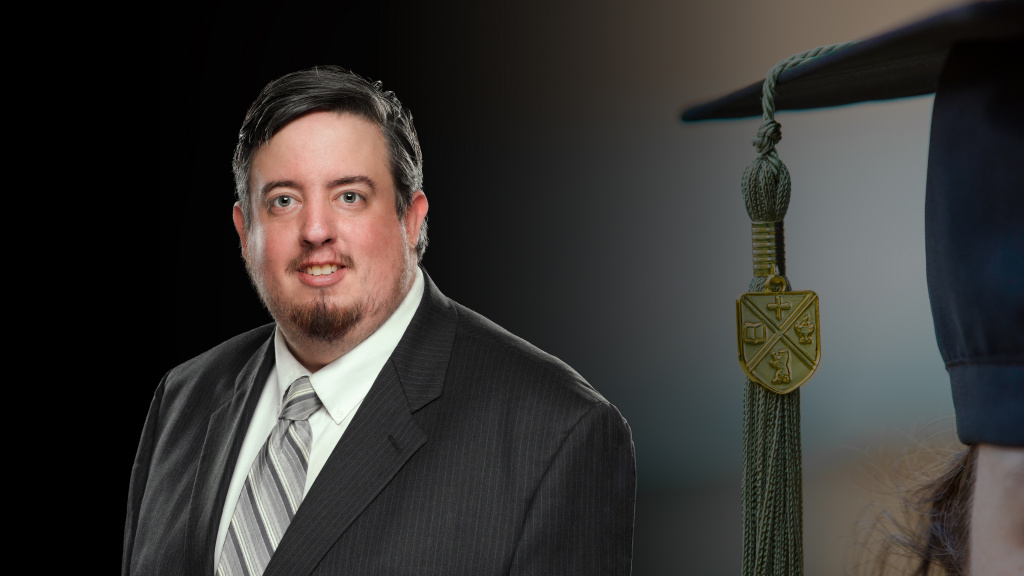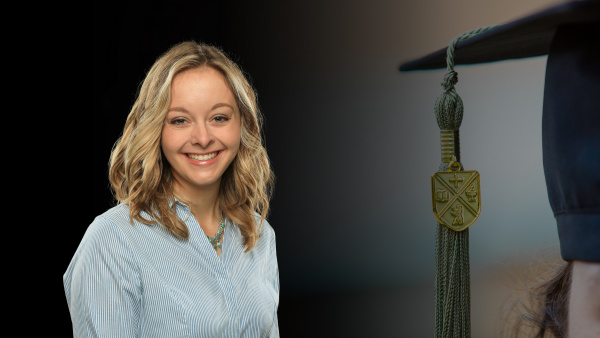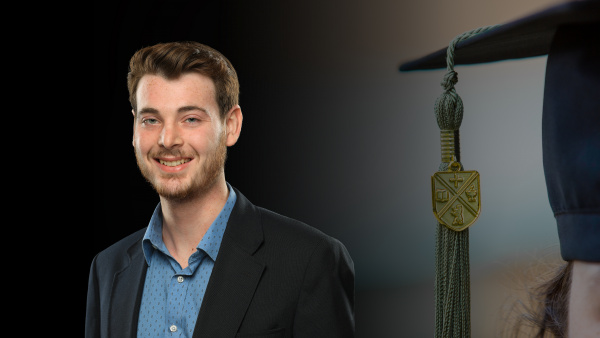“Most of my golds come from my swimming. My two best races are my freestyle and backstroke,” said senior educational studies student Josh Powell. Born with mild cerebral palsy and a mild form of autism, Powell has over 40 medals from his 28 years competing in the Special Olympics and has used that experience in his internship.
“Right now I’m helping the Thrive Upstate people to update their medicals for their athletes that they have in the Special Olympics. That’s just a small part of what I was wanting to do with the internship,” he said.
The other part of his internship at Thrive Upstate is leading a choir for those with intellectual disabilities. Said Powell: “What I’m doing with this is I’m allowing them to have the chance to energetically express themselves through the music that we’re singing and allowing them to use abilities that a lot of people probably are not used to seeing them use.”
The Struggle
Powell first came to the University as a special education student in 2004, but he didn’t return after that year. “I didn’t realize how much work it took to do college — not just college, but doing an education degree — and I was not ready,” he said.
Looking back, he realized he should have taken advantage of the transition program offered by the public school system to those with intellectual disabilities. “I had already been accepted to the University by the time that I was approached with the transition program, and I was thinking, ‘I had friends that are already going to school, and I want to do that.’ So even though transitions is open to me, I would rather just go to college,” he said.
Powell returned to BJU in 2013 to begin work on an associate degree in Christian Ministries, which he completed in 2016. Though he struggled, he found support through BJU’s Academic Resource Center. “I get extra time on a test. … I get to take a test in a separate room. I get access to what’s called Kurzweil, which reads the book to me, and all of that is really very helpful,” Powell said.
Since Powell returned to complete his bachelor’s degree in educational studies in 2019, he has seen academic progress. “I’ve never had grades as good as I have this semester. And just the improvement that I’ve made throughout my years of being here, I’m much more open to furthering my education than I used to be,” he said, not ruling out the possibility of going on for a master’s degree.
The Success
Part of Powell’s success in the educational studies program can be attributed to his internship with Thrive Upstate. The hands-on experience and the enjoyment he received were motivation.
Powell told a story of his first meeting with his choir. He spoke with one member who seemed nervous at the beginning of the rehearsal, asking him if he might want to sing. The individual replied that he preferred to play percussion and to stay in the background. At the second rehearsal, Powell said, “I started working more individually with the songs that we were going to sing, and I started singing with each person, kind of just taking my time and getting them used to the music. And he was one of the first people to say, ‘Can I sing, too?’ Because he heard how I was singing with each person, and he wanted to get in on the action.”
Another time, when the choir was rehearsing the song “Ten Minutes Ago” from the Rodgers and Hammerstein musical Cinderella, “For the most part the individuals that I direct, they don’t like to be very loud in how they sing. So I took the time to tell them about piano, mezzo piano, mezzo forte and forte.” Then he had them sing “Ten Minutes Ago.” It was better, but not quite where he wanted it. He had noticed some of the choir members waving their arms on the line “We are flying,” so he had the whole choir make similar gestures throughout the song, seeing if he could get more energy from them. Said Powell: “We sang the whole song, then they just let their imaginations go wild with this, and it was amazing.”
Powell believes that his experience has given him a unique perspective that allows him to connect with others with intellectual disabilities. “I feel that my disabilities have opened up my greatest opportunities that I’ve had in life, and I want to help others who have disabilities to recognize that even though they have disabilities, that is not their label,” he said. “Their disabilities can open up opportunities that they may not have recognized before.”








